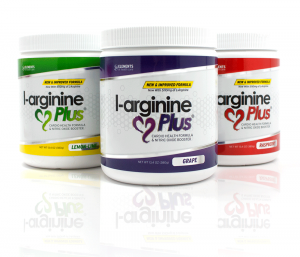If you have kids at home, then their health is probably one of your top priorities. Learn about American children and their heart health.
New research suggests that most children and adolescents in the U.S. have poor cardiovascular health. Appearing in the June 2022 issue of Circulation, the research is the first one in the U.S. to measure cardiovascular health (CVH) according to the American Heart Association’s (AHA) new criteria and scoring for cardiovascular health.
According to their results, less than 30% of children ages 2 to 19 had high CVH scores. In fact, the number of children with high scores decreased considerably with age. To illustrate, 56% of 2 to 5-year-olds had high CVH, while only 14% of 12 to 19-year-olds had high CVH.
Poor Heart Health
 “We found that among U.S. children, scores were lowest for the diet metric, which is comparable to what we saw in adults,” says senior author Amanda Marma Perak, MD, a cardiologist at Ann & Robert H. Lurie Children’s Hospital of Chicago and Assistant Professor of Pediatrics at Northwestern University Feinberg School of Medicine.
“We found that among U.S. children, scores were lowest for the diet metric, which is comparable to what we saw in adults,” says senior author Amanda Marma Perak, MD, a cardiologist at Ann & Robert H. Lurie Children’s Hospital of Chicago and Assistant Professor of Pediatrics at Northwestern University Feinberg School of Medicine.
“Individuals and families who improve their eating patterns can markedly improve their total cardiovascular health, even independent of weight change,” Dr. Marma Perak continues. “In addition to families’ efforts to improve, we also need policy-level support for better diets, such as subsidies for fruit and vegetable production or making healthier foods more readily available and removing sugar-sweetened beverage options in schools.”
New Metrics
The study followed AHA’s new metrics for CVH, which comprises eight components: sleep duration, diet, physical activity, nicotine exposure, BMO, blood lipids, blood glucose, and blood pressure. Researchers also used data from the National Health and Nutrition Examination Surveys (NHANES) from 2013 to 2018, which included 9,888 child participants.
However, only three metrics were available in NHANES for all participants ages 2 to 19: diet, physical activity, and BMI. As age increased, other measurements were added, but not at the same time.
“Maintenance of higher cardiovascular health at all ages is associated with extremely favorable health outcomes,” says Dr. Marma Perak. “Children with high CVH have lower burdens of subclinical cardiovascular disease in mid-life. And for children who manage to maintain high CVH into late adolescence or young adulthood, their risk for premature clinical cardiovascular disease events over the next 30 years is extremely low. Ultimately, the new measures of CVH will allow clinicians and scientists to track changes with more precision so that they can intervene earlier and set kids on a healthier path into adulthood.”
The Outlook
 While all CVH metrics were not available for children of all ages, this study gives us a window into the health of America’s children. Two of the best things you can do is help your children build a healthy relationship with food and make sure they get the exercise they need, especially as they get older.
While all CVH metrics were not available for children of all ages, this study gives us a window into the health of America’s children. Two of the best things you can do is help your children build a healthy relationship with food and make sure they get the exercise they need, especially as they get older.
At the same time, you need to stay healthy by doing the same: exercising regularly and eating heart-healthy foods. If you want to give yourself an extra boost to keep up with your kids, you can also take supplements like L-arginine Plus. Its ingredients help promote circulation, energy levels, blood pressure and cholesterol health, and more. While it may not be for kids, taking L-arginine Plus may give you the support you need as you help improve your family’s health.

